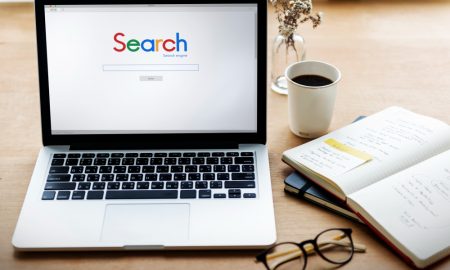
Essential Documents for Opening a Business Bank Account: Your Checklist

Embarking on the entrepreneurial journey is exhilarating, but navigating the financial side of your venture requires thoughtful consideration. One pivotal step in establishing financial credibility for your small business is opening a dedicated business bank account.
Unlike personal accounts, this process demands meticulous documentation and strategic decision-making. In this comprehensive guide, we’ll explore the benefits of a business bank account, delve into the types of accounts you should consider, and provide insights into choosing the right bank for your unique business needs.
Why Your Business Needs a Dedicated Bank Account

Freepik | benzoix | A dedicated business account adds a professional touch to your transactions.
As you plunge into the realm of entrepreneurship, the importance of a dedicated business bank account cannot be overstated. While your personal account may serve your daily needs, a business account offers many benefits tailored to the intricacies of your enterprise.
1. Limited Liability Protection
Maintaining a clear separation between personal and business finances is crucial for limiting personal liability. According to Chas Rampenthal, General Counsel at LegalZoom, this clear demarcation shields your personal assets from potential business-related issues.
2. Purchase Protection for Customers
Business banking options often include merchant accounts, providing purchase protection for your customers, and safeguarding their personal information. This feature, also found in top credit card processing services, enhances customer satisfaction and fortifies trust in your brand.
3. Professionalism
A dedicated business account adds a professional touch to your transactions. From receiving checks made out to your business to facilitating credit card payments, this professional image extends to your customers and employees, fostering a sense of credibility.
4. Credit Options
Certain banks extend lines of credit for emergency situations, while others offer business credit cards to help build a credit history for your budding business. These options provide valuable financial flexibility that can prove instrumental in your business’s growth.
In essence, a business bank account acts as a financial hub, segregating personal and business funds while offering a range of advantages essential for your entrepreneurial journey.
Exploring Business Bank Account Types
Freepik | rawpixel.com | Different business bank accounts serve specific needs.
Similar to personal banking, various types of business bank accounts cater to specific needs. Depending on the nature of your business, you may find it necessary to open multiple accounts. Let’s explore the four common types:
1. Checking Account – Ideal for managing payroll, expenses, and routine financial tasks essential for your business’s day-to-day operations.
2. Savings Account –Complementary to a checking account, a business savings account is crucial for accumulating and safeguarding your earnings.
3. Merchant Account – For businesses planning to accept credit and debit card payments, a merchant account provides a secure avenue, enhancing customer satisfaction and trust.
4. Credit Card Account – Utilize a business credit card for emergencies or miscellaneous expenses, serving as a valuable tool for building or improving your business credit score.
Each account type plays a distinct role in fortifying your business’s financial foundation.
Choosing the Right Bank for Your Business
Selecting the right bank for your business account involves careful consideration. With a plethora of options available, it’s essential to sift through them to find the perfect fit.
Consideration Factors
1. Fees
Understand the fee structures and minimum balance requirements associated with business accounts. Keep in mind that business accounts typically have higher fees than personal accounts.
2. Sign-Up Bonuses
Explore whether the bank offers any sign-up bonuses, as these incentives can provide additional revenue for your business. However, be aware that these bonuses are taxable.
3. Account Maintenance Requirements
Be aware of any requirements imposed by the bank, such as maintaining a minimum balance or utilizing specific banking services to avoid fees.
4. Features
Evaluate the features offered by each bank, considering factors like detailed analytics, mobile banking capabilities, business debit cards, and alert systems.
In the words of Mike Swigunski, founder and CEO of Global Career, “Always shop around. Banks are always looking to acquire new customers while simultaneously retaining current ones, so use this to your advantage to get better deals.”
Documenting Your Business Legitimacy

Pexels | Alexander Suhorucov | Prepare all required documents before opening your business bank account.
Before you embark on the journey of opening a business bank account, ensure you have the necessary documentation in order. The following documents are imperative for a smooth account-opening process:
1. Articles of Incorporation – These legal documents outline how your business is structured and are crucial for registering your business with the state and other relevant entities.
2. Business Licenses – Banks often require your current business license to verify your legal authorization to conduct business in your region.
3. Doing Business As (DBA) Certificate – Also known as a fictitious name, a DBA certificate allows you to operate under a name different from your business’s existing name. It’s essential to use your business name on financial transactions.
4. Employer Identification Number (EIN) – If you’re a sole proprietor, an EIN, your Social Security number and identification documents are necessary for opening a business account.
5. Identification Documents – Government-issued photo ID, such as a driver’s license or passport, is required to confirm your identity as the business owner.
Timing Is Key: When to Open a Business Bank Account
The opportune time to open a business bank account is before accepting your initial payment. Typically, businesses open these accounts during the incorporation process. However, it’s crucial to note that a business account cannot be opened until you possess a valid license to operate and an identifying tax number, such as an Employer Identification Number (EIN) or a Social Security number for sole proprietorships.
Decoding the Difference: Banks vs. Credit Unions
Banks and credit unions offer similar services, yet their organizational structures and classifications differ. Banks operate as for-profit entities, while credit unions are nonprofit institutions collectively owned by their members.
The disparity in classification leads to variations in regulations and services. While both institutions provide money management and loan services, differences in fees, interest rates, and membership requirements exist.
In-Person vs. Online Applications: Weighing Your Options
The decision to apply for a business bank account in person or online hinges on various factors. Some banks may not offer online applications due to security concerns, while others may take more time to process online applications. The convenience of applying online must be weighed against the potential delay in account setup.
Mastering your business finances begins with a thoughtful approach to opening a business bank account. By understanding the types of accounts, choosing the right bank, preparing essential documents, and timing your account opening correctly, you set the stage for a seamless and prosperous financial journey in the world of entrepreneurship.
More in Business
-
`
Hollywood Greatest Comebacks: Actors Who Staged Remarkable Returns
Hollywood may sparkle with glitz and glamor, but it’s a tough business. Stars who once basked in the spotlight can find...
April 26, 2024 -
`
Misinformation Is the New Normal: How You Can Spot Misinformation Online
In the ever-evolving world of the Internet, where information and misinformation intertwine like vines, it is essential to know how to...
April 25, 2024 -
`
America is Rich But Americans Are Poor | This Best-Selling Book Explains Why
In the midst of America’s wealth and global dominance lies a startling and often overlooked reality: The persistent existence of poverty....
April 25, 2024 -
`
What They Don’t Teach You in School About Money
From an early age, we’re told that going to school and getting a degree will set us up for financial success....
April 24, 2024 -
`
Work Presentations: How to Say Goodbye to Boring Office Meetings
Picture this: you’re in a conference room, surrounded by colleagues. The lights dim, a projector flickers to life, and there they...
April 24, 2024 -
`
Gwyneth Paltrow Was Once Called out by NASA for This Bizarre Reason!
Once upon a time, Gwyneth Paltrow was considered to be one of the most promising actresses of her time. While she...
April 23, 2024 -
`
Discover the Royal Charm of Villa Maria Pia in Cascais, Portugal
Nestled on the sun-kissed north shore of Lisbon, the captivating town of Cascais, Portugal, harbors a secret steeped in royal history....
April 22, 2024 -
`
Key Indicators to Monitor as an Investor in 2024
Welcome to 2024! As an investor, you are navigating a financial seascape that is constantly reshaped by new trends and timeless...
April 21, 2024 -
`
Why Prince Harry and Meghan Markle’s Latest Business Move Has Everyone Confused
Hold onto your fascinators, royal fans, because Prince Harry and Meghan Markle are back in the headlines, not for a tell-all...
April 20, 2024















You must be logged in to post a comment Login